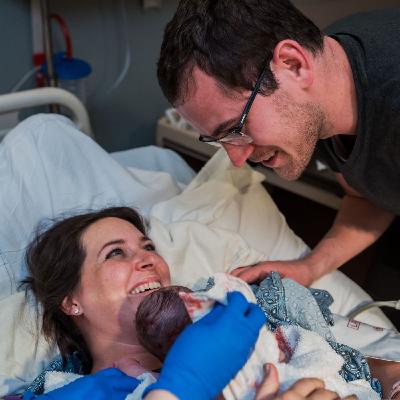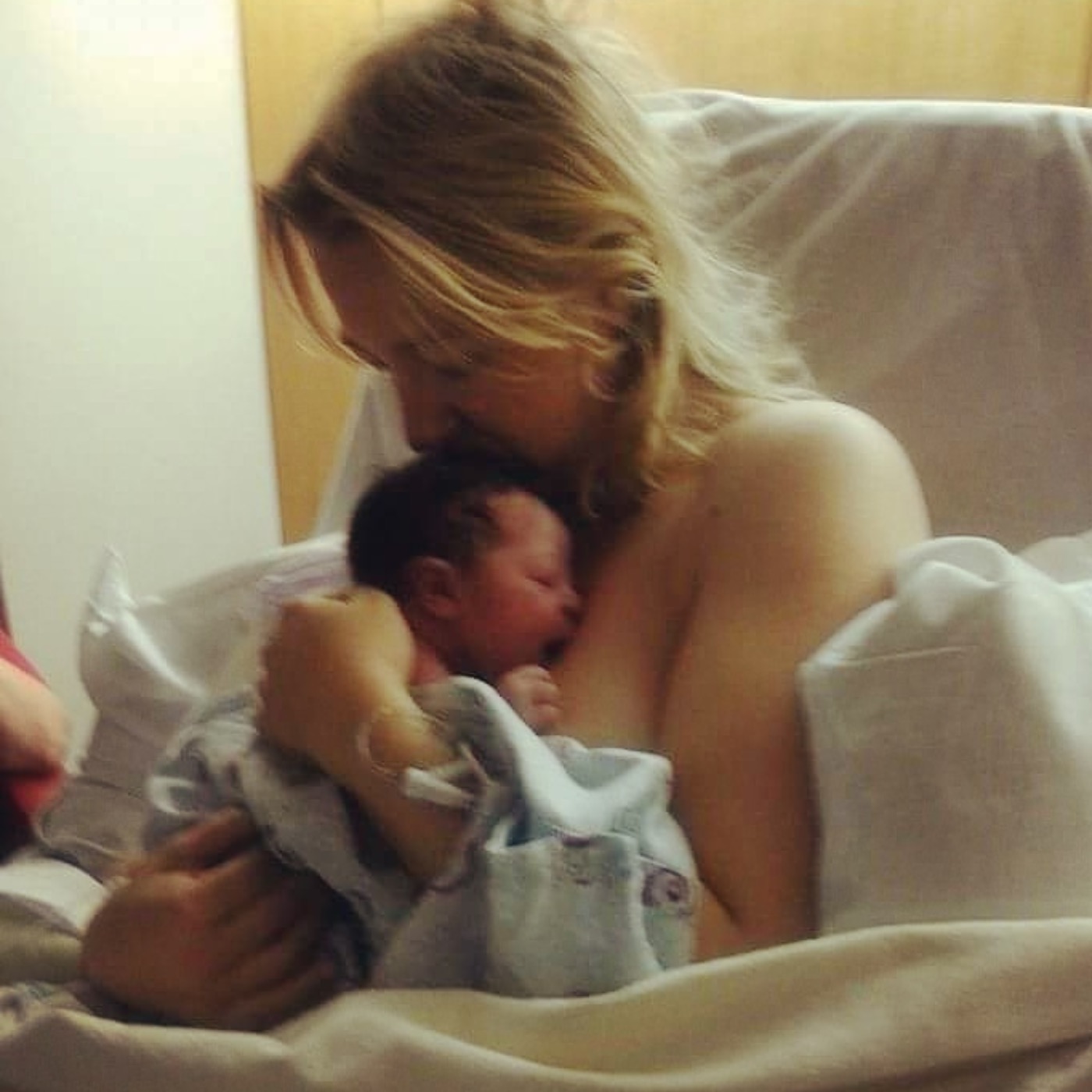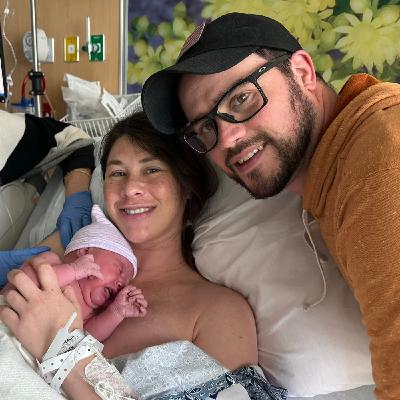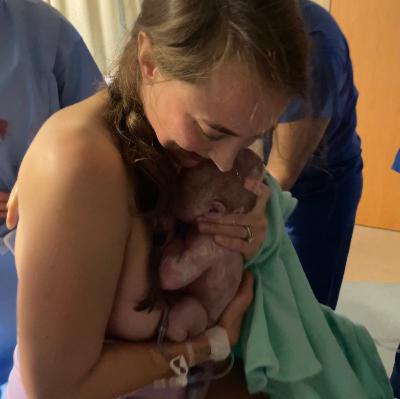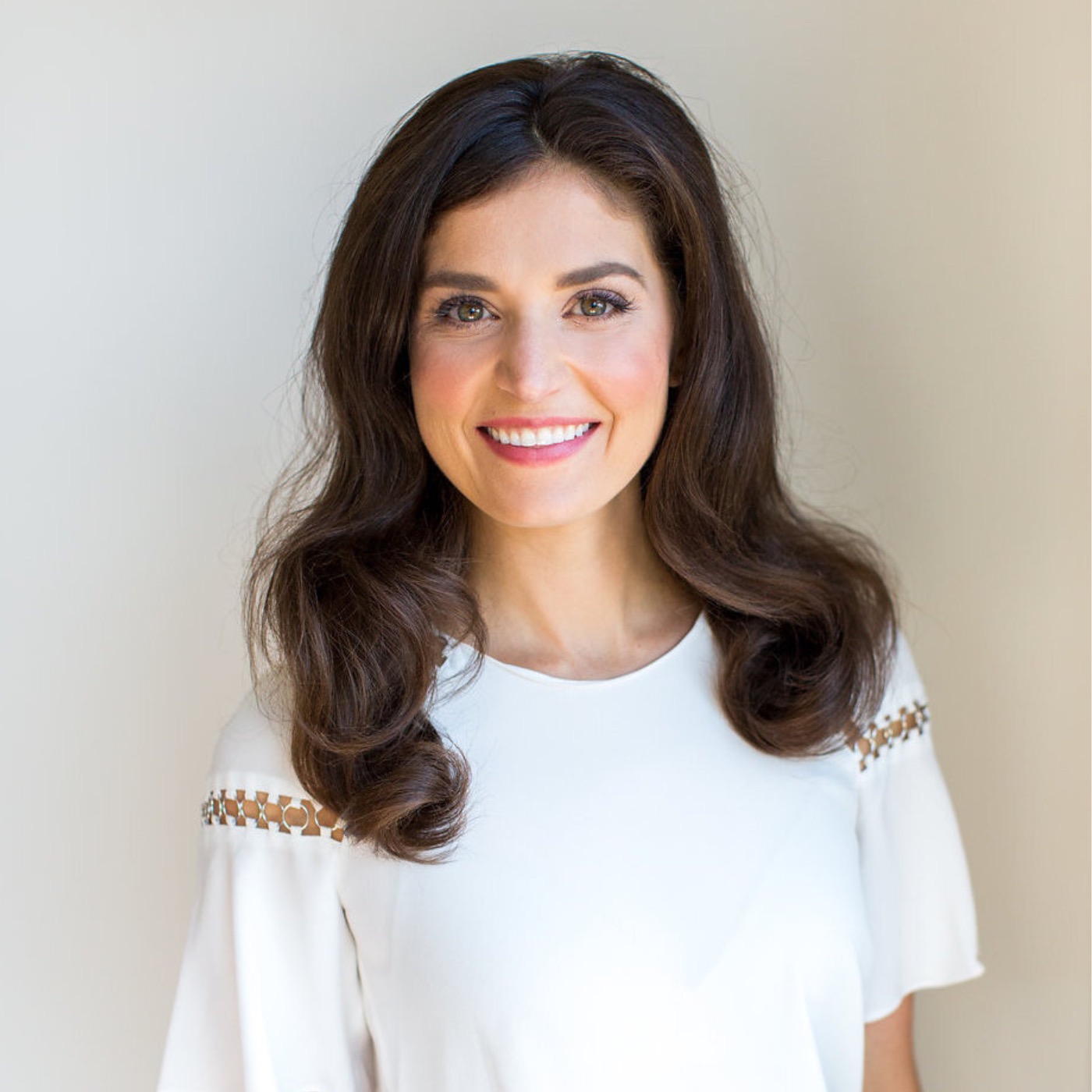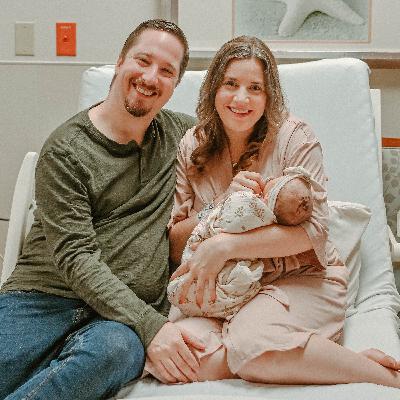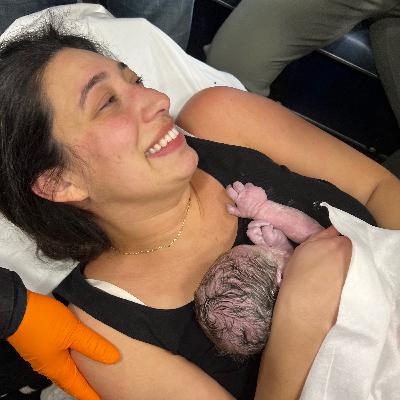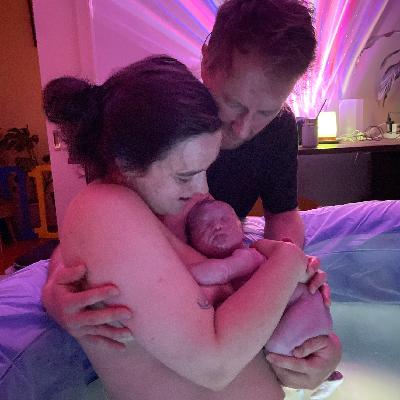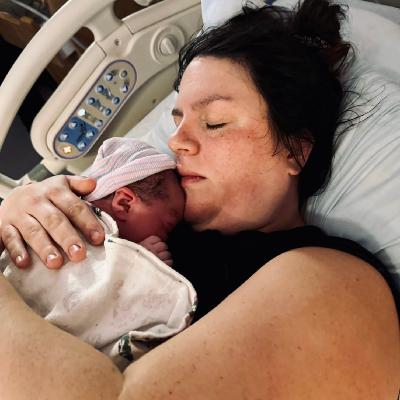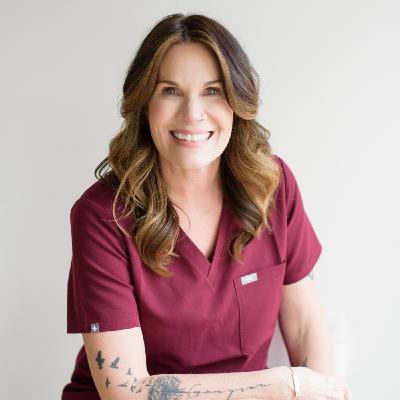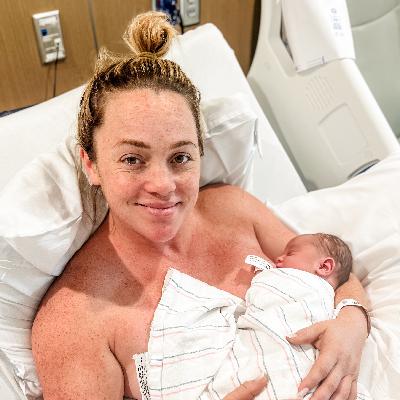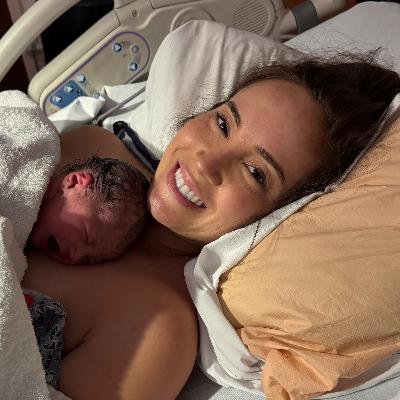Episode 355 Alma's Precipitous VBAC After an Induced Labor for Gestational Diabetes Turned to a Cesarean
Description
Alma’s first birth was an emergency Cesarean after an induction at 40 weeks due to gestational diabetes. Due to COVID-19 policies, Alma’s husband was not allowed into the OR. She did not expect the induction process to end the way that it did, and felt robbed of the positive birth experience she hoped to have.
Alma made sure to educate herself on all of her options for her second birth. She was very proactive about her health and did not have gestational diabetes the second time. She went into labor earlier than she expected at 38 weeks. She woke up in the middle of the night to her water breaking, and intense contractions began.
Within minutes, Alma knew she had to go to the hospital immediately. Alma felt pushy as they made the 45-minute drive. She was admitted to a room, and her beautiful baby was born just two pushes later!
Evidence Based BirthⓇ: Induction for Gestational Diabetes
The VBAC Link Blog: VBAC with Gestational Diabetes
How to VBAC: The Ultimate Prep Course for Parents
Full Transcript under Episode Details
Meagan: Hello, hello. It is almost the end of November. It is crazy to think that the year is coming to an end. But guess what, you guys? We still have so many amazing stories coming your way. Today’s story is from our friend, Alma. I’m already messing it up. It looks like Alma, but you say it. Tell me how to say it correctly.
Alma: Alma, but any way you say it is fine.
Meagan: Perfect. I want to say it correctly though. She is sharing her stories today. Now, you are in New Jersey now, but you weren’t in New Jersey when you had your VBAC. Is that correct?
Alma: When I had the C-section, I was in New Jersey, so we just zigzagged a little bit.
Meagan: So she’s in New Jersey, but the VBAC wasn’t in New Jersey. I know a lot of people when they are listening are like, “Where was this VBAC?” We will talk a little bit more about that when we get into the story, but let’s give them a little teaser of what your episode is going to be.
Your first C-section, I feel like was the steps. It was the steps or the cascade, and then a little bit of what you went through. Tell us a little bit of a teaser before we get into the episode.
Alma: I had a lot of interventions in my first pregnancy and did end in an emergency C-section, then for my son, my second pregnancy, it was exactly the opposite. There wasn’t time for any intervention. He just flew out. My whole labor was 2 hours from the first contraction to when he was born. I almost delivered in the car. He was too fast, but it was exactly the experience that I wanted to have.
Meagan: Yes. Oh my gosh, so a precipitous labor after a lot of interventions, an induction, and all of these things. I’m so excited to get to this episode today, but we do have a Review of the Week. As usual, if you haven’t done so yet, please leave us a review. We absolutely love them.
Okay, this episode reviewer is Desiree Jacobsen. She actually just left this review this year in August of 2024. It says, “Thank you”. It says, “This podcast and parent’s course is amazing. I’m not a VBAC mom, but I have been listening since 2020. I binge-listen toward the end of pregnancy to remember everything I need to remember in the birth process through my previous births. This time around, I felt more prepared than ever before having plans in place just in case. We were able to have a quick birth for my fifth baby. I love the education, passion, love, and support this podcast gives. I recommend it to everyone I know, and I have learned so much from it. I am so grateful for this podcast. Thank you”.
Oh, I love that. I love that, love that, love that. That was actually sent to us via email. If you didn’t know, you can email your reviews at info@thevbaclink.com. Your reviews on the podcast and on Google are what truly help other Women of Strength find this platform and find the courage and the information that they need to choose the birth that they desire.
Okay, girl. Let’s get into this story. So first birth, lots of interventions. Let’s talk about it. One, what types of interventions, and two, why? What led up to needing those interventions or I don’t know if it’s “needing” or really medically needed? Tell us more.
Alma: Well, my first pregnancy was very normal and healthy up until I was diagnosed with gestational diabetes. That’s where things started to change a little bit. I just failed the test by just a point, so my blood sugar was elevated, but it wasn’t as bad as it could be. I wasn’t even on insulin. I was just on diet control.
Everything was going fine so I thought, but I would say a week before my due date, I was told that I needed to be induced because of the gestational diabetes. That was the first red flag of things going out of my control because I didn’t expect to be induced. Although I had gestational diabetes for a while already, I wasn’t told that this would probably be the case that I would be induced.
I agreed to the induction of course. I understand why it’s done, so I went along with it. I think my daughter just did not want to be born. On that day at least, we went in on my 40th week, and I was on Pitocin for hours, and it did nothing.
I tried some exercises. I tried a bunch of things. Nothing worked.
Eventually, the doctor suggested to manually break my water. That’s where I wish I had asked to do other things first. I wish I had rejected that choice, but I went along with it.
From that point, the labor went from 0 to 1000. I was in so much pain in a matter of minutes. Everything happened so fast, and I wasn’t ready for that. I asked for an epidural really fast. I got the epidural, and that’s also when things got worse because my blood pressure started to decrease.
I didn’t know that could happen actually. Later on, I scoured through every detail of what happened, and I tried to figure out exactly what went wrong. I realized that could happen with an epidural. When your blood pressure is affected, of course, the baby’s blood pressure is affected so my daughter started to have some fetal decelerations. It was very concerning.
They put me on my back to deliver to push her out. I wasn’t even 10 centimeters yet. They were going to stretch me, but her blood pressure just declined in a way that was really concerning. I was rushed to the OR and the C-section was done.
Everything happened so fast. I hesitate in using the word traumatic just because in the end, everybody was fine. I was fine. My daughter was fine. She was healthy, but it was very traumatic because nothing was in my control in that moment. I felt almost robbed of the experience that I expected to have.
That was my first birth.
Meagan: Well, and when things are rushed like that and you are left in a sense of– you said panic, but in a sense of urgent need to save something or save someone, it does. It sets all of your alarms off.
Alma: That’s exactly what happened.
Meagan: Everyone has trauma differently. They view trauma differently. Someone may see one things as traumatic, and someone would be like, “How is that traumatic?” It’s okay, I think, that you’re using that word because that is how you are perceiving this. Your feelings and your alarms that were going off in your body as everything was being rushed and all of these things left that traumatic feeling.
Alma: Yeah, definitely. In that moment, I felt like I couldn’t breathe. At this time too, there were a lot of COVID restrictions, so my husband wasn’t let into the OR. It was like, “What happpened to her?” He was more concerned than me probably. He thought both of us were going to die, my daughter and myself. It all just happened so quickly.
Thankfully, we were okay in the end, but I had no idea I would be coming back with a C-section scar. That requires more recovery. As a new parent, we were already new to everything. It was a lot to deal with, I think.
Meagan: Yeah, what you were saying, I’m sure your husband had a lot of trauma through that experience too. We know that COVID especially– I mean, birth in general comes with a lot of things especially the unexpected, but when you through COVID in with that, it’s a lot of ick. It’s a lot of icky feelings. It’s a lot of ick.
Alma: Yes.
Meagan: So everything was good. Baby was good. You were good. Overall, it was a less-ideal situation, but where did that leave you after you had the baby and you were starti


